Integrating robots into production processes is no longer a novelty. Robotization and automation solutions come with clear and demonstrable improvements in accuracy, efficiency, throughput, throughput, flexibility and last but not least, significant cost savings. Experts say that a well-planned and integrated automation system can improve a factory's productivity by percentages from 50%.
Why do we need robots?
Lack of labor, would be the answer I would certainly get from many of you. And you are not far from the truth. But it is not the only one. The potential for increased productivity, consistency in product quality, improved quality of the working environment and the quality of other employees' work are equally important arguments.
We are an automobile manufacturing country where repetitive operations have long been taken over by robots. I don't think the first idea of those who decided this was a lack of manpower. It was more about yields, efficiency, flexibility, quality, price of the finished product. I believe that the Romanian furniture market, woodworking in general, is ready for the next level. More and more entrepreneurs are accessing funds to buy more and more modern machinery. Factories that a few years ago were producing furniture for export with ageing machinery and a lot of manual labor now have modern manufacturing lines, CNCs and robots.
The start has already been made and soon we will all understand that high-performance machines and robotic and automation solutions are the road to performance. Solutions on the market can cover from needs identified in small and medium-sized factories to complex systems for industrial plants.

Biesse solutions - integrated into any panel processing process
In addition to the machines offered, Biesse offers some of the most modern and adaptable automatic handling systems. The robots can service CNCs or machines for cutting, drilling, boring, threading and calibrating in complete safety, while maintaining quality at all times.
One of the simplest automation solutions is the panel turning system to turn the panels to be lined. After applying the edge on one side, the system automatically turns the panel 90 degrees, eliminating downtime and unnecessary handling. The result is increased throughput and fewer operators.
With robotization and automation solutions, machines can be loaded and unloaded regardless of the weight and size of the panels. Elements can be handled after vertical cutting and prepared for horizontal cutting. At the end, also with the help of robots, the elements resulting from the panel unloading are stored according to size or type. The robots can be integrated into a single machine, a work cell or an automated line.
ROS - robotic operating system compatible with the full range of Biesse machines
The most powerful robotic machine assistance system ever - new from Biesse this year at LIGNA - this ROS (Robotically Operated System). I am integrated robots for panel handlingversatile and efficient, requiring no operator intervention. They are configured in such a way that they can assist any machine, can be integrated into production lines or digital factories.
ROS is the system that can do all the manipulation operations. It is basically a sum of these systems. It is the perfect operator who works 24 hours a day, 7 days a week without tiring, keeping the pace and quality.
Such robotic solutions are well suited for all types of processes in a production factory. Due to their compact size and ability to move robots can move and rotate panels, feed any type of processing machinery, sort the final products of the processing.
The impact of automation on production and employees
The robotization and automation solutions proposed by Biesse have a major impact on production. Quality assurance, increased productivity and competitiveness, reduced risk of human error, process optimization and simplification, efficiency are just some of them.
It is one of the investments with quick payback provided that the purchase is made after a concrete and detailed analysis of both the production processes and the objectives pursued. Accesoria Group, Biesse's representative in Romania, recommends prudent and careful evaluation of the processes to be automated in order to bring real benefits and a good profitability in the end.
In terms of impact on employees, it is well known that any investment in technology is also an investment in people. They can be upgraded from repetitive, repetitive, manual labor to professional, high-value work. Robots take over difficult and uninteresting tasks while protecting employees' health. The most obvious example is the feeding of panel cutting machines where, because of their weight, two operators are needed. This makes the factory a safer and healthier place for employees.
—
There is a need for robotization and automation solutions in factories, in small as well as in medium and large ones. It is not just about the workforce, although that too is a problem, because there is not enough of it, nor does it look like there will be enough in the future. But there are other, much more important benefits. Quality, efficiency and output that will allow us to "compete" on a level playing field with major firms in the industry in other countries. Manual labor will be a niche field in the future. Well paid, but niche. We won't all be able to make vintage wardrobes with hand-made dovetail joints. Automated production equipped with high-performance machinery, modern production lines and robots will be able to bring the price of the finished product as low as possible while maintaining or even improving quality. It is all about competitiveness.





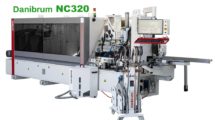
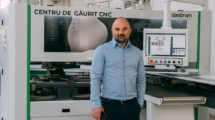
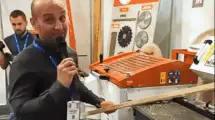
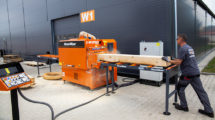


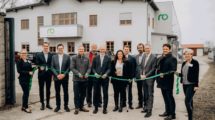








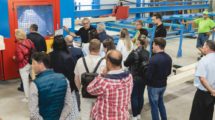



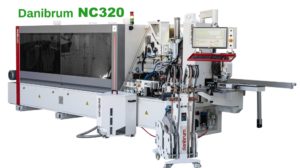
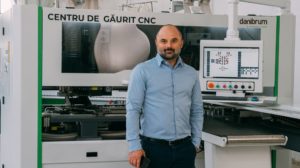
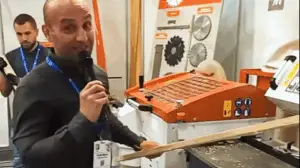
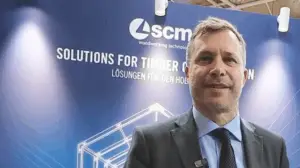
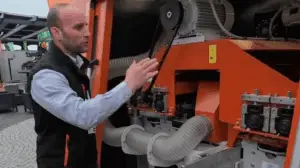
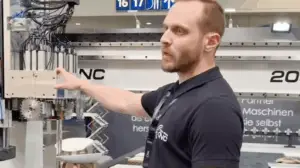
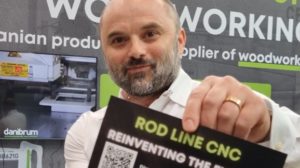
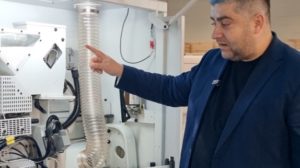
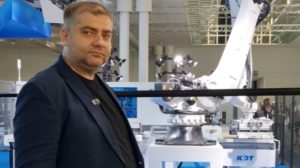



Add comment